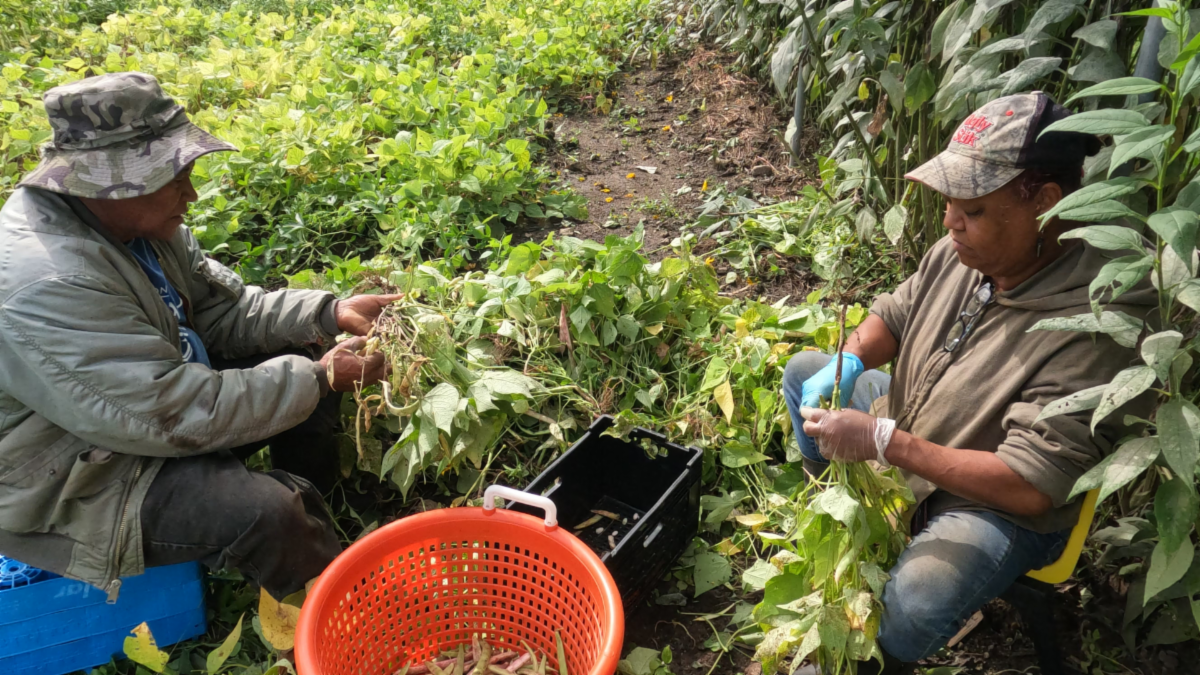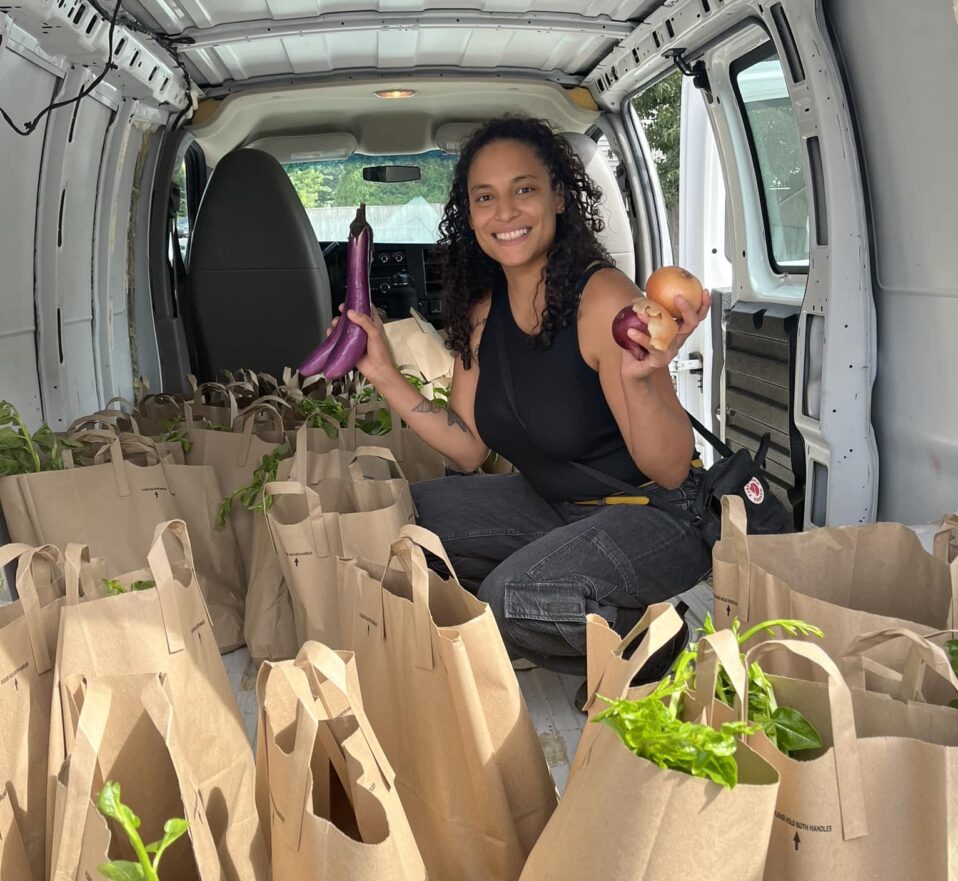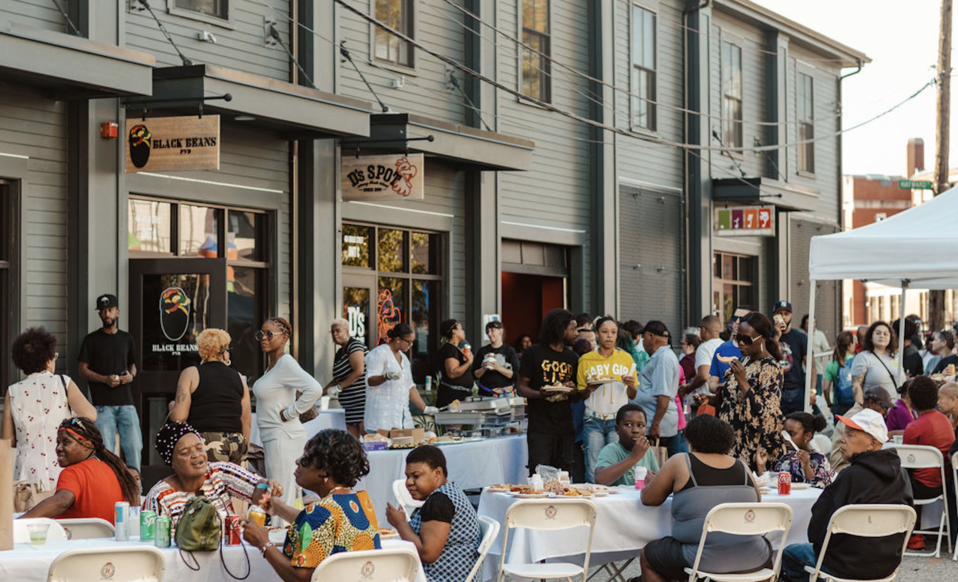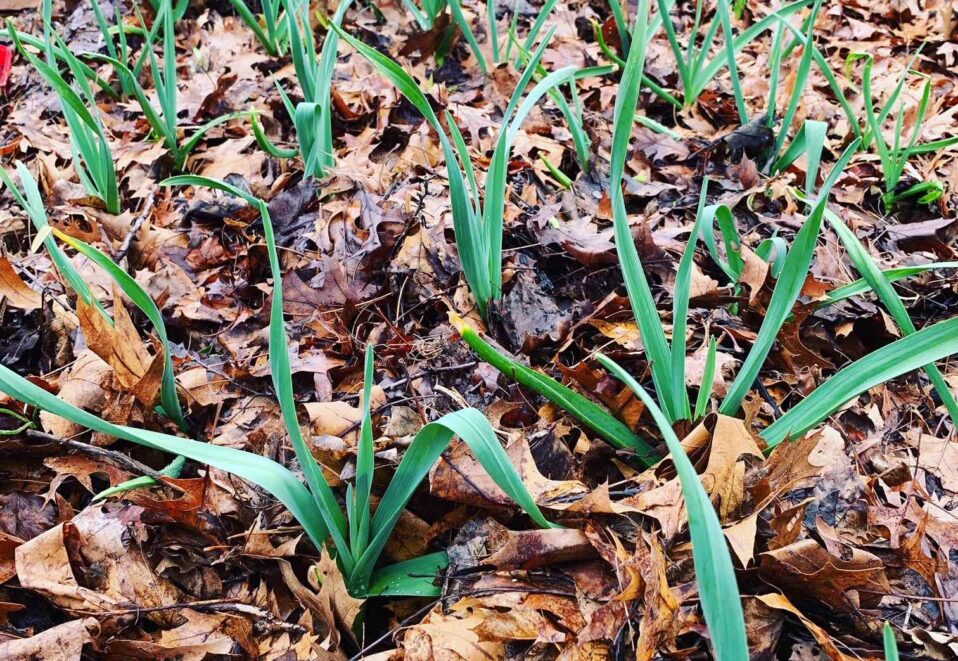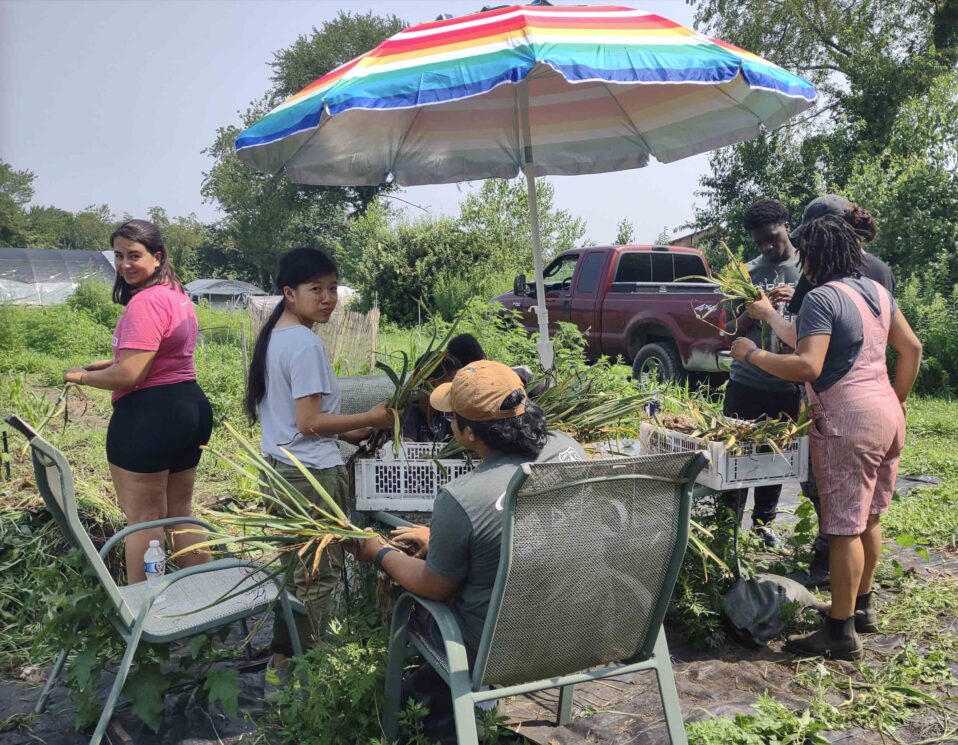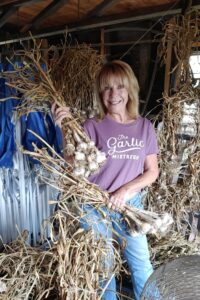As the bright light of summer gives way to the richer colors of autumn, it is easy to think the gardening season is over. However, fall is, in many ways, the beginning, not the end of the growing season. Kale and beets that struggled in the heat of summer begin to grow thicker and darker, reaching their peak of sweetness as temperatures drop. You might still capture a crop of radishes that take but a month to form tubers in the cooler weather. The first “killing” frost will wipe out weeds and pests.
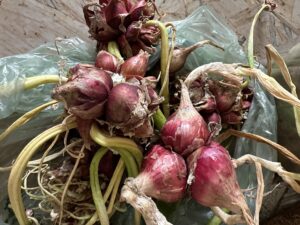
Top photo: Garlic shoots growing up through a deep layer of fall leaves. Above: Perennial Egyptian onions can be planted now, and will reward you throughout the next growing season.
Fall is the time to make big structural changes, to start new beds and resize old ones. It is also the time to plant bulbs: garlic, Egyptian onions, daffodils, and tulips are eager to go in the ground. You can even experiment and plant wildflowers and cilantro seeds in hidden places you will forget, only to be surprised when they emerge in the spring.
When it comes to alliums, Egyptian onions are a favorite. They provide year-round green onions for the kitchen, growing tender shoots in spring and fall, and create a formidable aromatic shield against deer and rodents. These perennial green onions emerge at the end of winter, before most plants have begun to grow, and provide protection to young neighboring plants from the very beginning of the new growing season.
As spring turns into summer, Egyptian onions bloom, and become a favorite stop for native pollinators, eventually blending in with the lush green in your garden. But, make no mistake, even in the background, these pungent guardians remain on active duty, creating a barrier that is imperceptible to humans, but so very disturbing to deer and rodents.
Having planted your bulbs, autumn holds the key to unlock the fertility of your garden. This is the season when Master gardeners rush in with piles of manure, mineral amends, and mulch to replenish nutrients. They know that it is in the darkness of winter when cover crops, manures, and mineral amends are transformed into plant-ready nutrients by the soil food web. Your main job as a gardener is to protect this living web with a rich and thick layer of mulch, preferably in the form of fallen leaves that will slowly decompose and help remineralize your soil year after year.
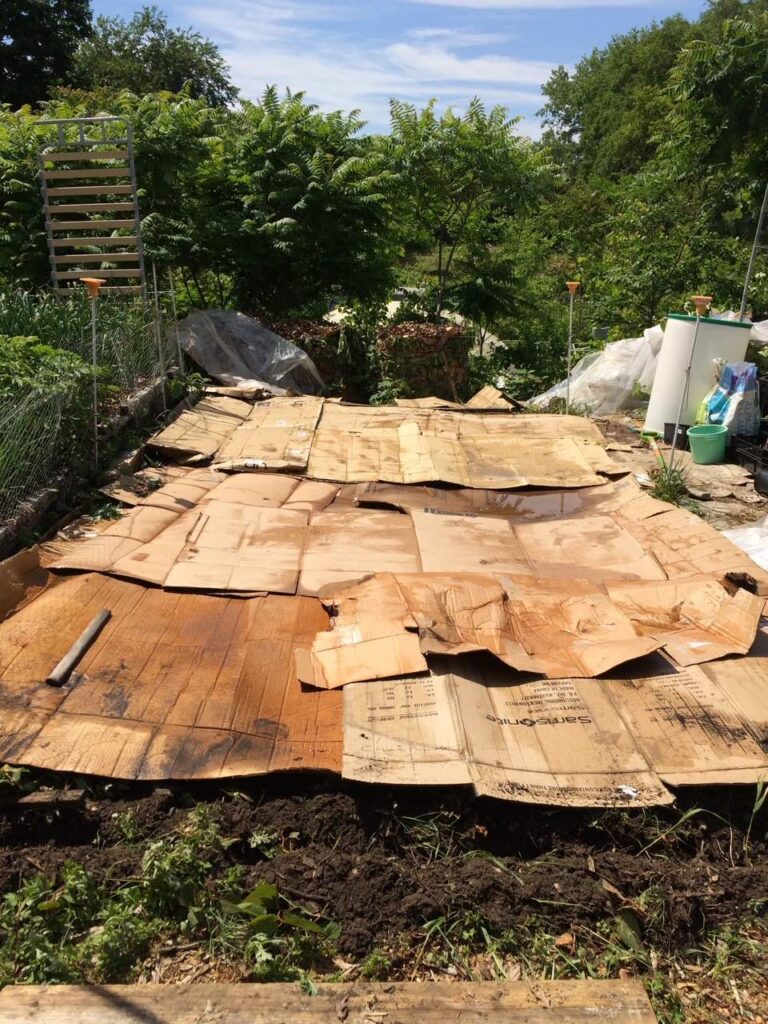
Covering your bed with cardboard and a deep layer of leaves on top is a great way to enrich your soil and suppress weeds.
If you had a hard time with weeds the previous season, fall is also the time to get ahead of them. Find plenty of plain cardboard—without glossy inks or colors, just the regular brown stuff. (Bike shops are a great place to find very large cardboard boxes that can cover an entire garden bed without interruption.) Remove tape or staples and place the cardboard on top of your beds or any area where you want to suppress weeds. Then, cover everything with a thick layer of leaves, as much as 9” deep, to protect and feed your soil ecosystem over winter. Rain and snow will soften the cardboard and compact the leaves on top, worms and arthropods will break through it, but young weeds will not—this applies to your bulbs too, so do not cover garlic or other new bulbs with cardboard.
When spring comes, you can plant right into it; but do not remove or disturb this rich layer of cardboard and leaves beyond what is strictly necessary to plant your seedlings. This is a way to build good soil, and this is how you become a pro at creating a virtuous cycle of fertility that requires less work to grow stronger plants year over year.
Be brave, take a leap, and this fall start your next growing season by building or rebuilding a strong foundation under your garden.
–Francisco Cabas
Francisco is a gardener at Galego Community Farm in Pawtucket. You can learn about vermiculture, natural pest control, overwintering crops, harvesting garlic, and much more from his gardening videos on Youtube @GardensofNewEngland

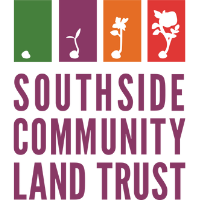
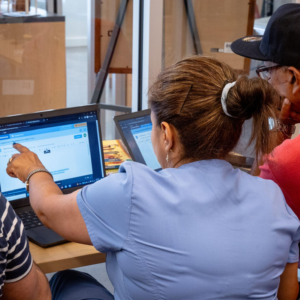
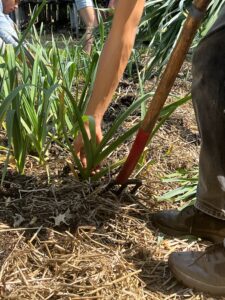
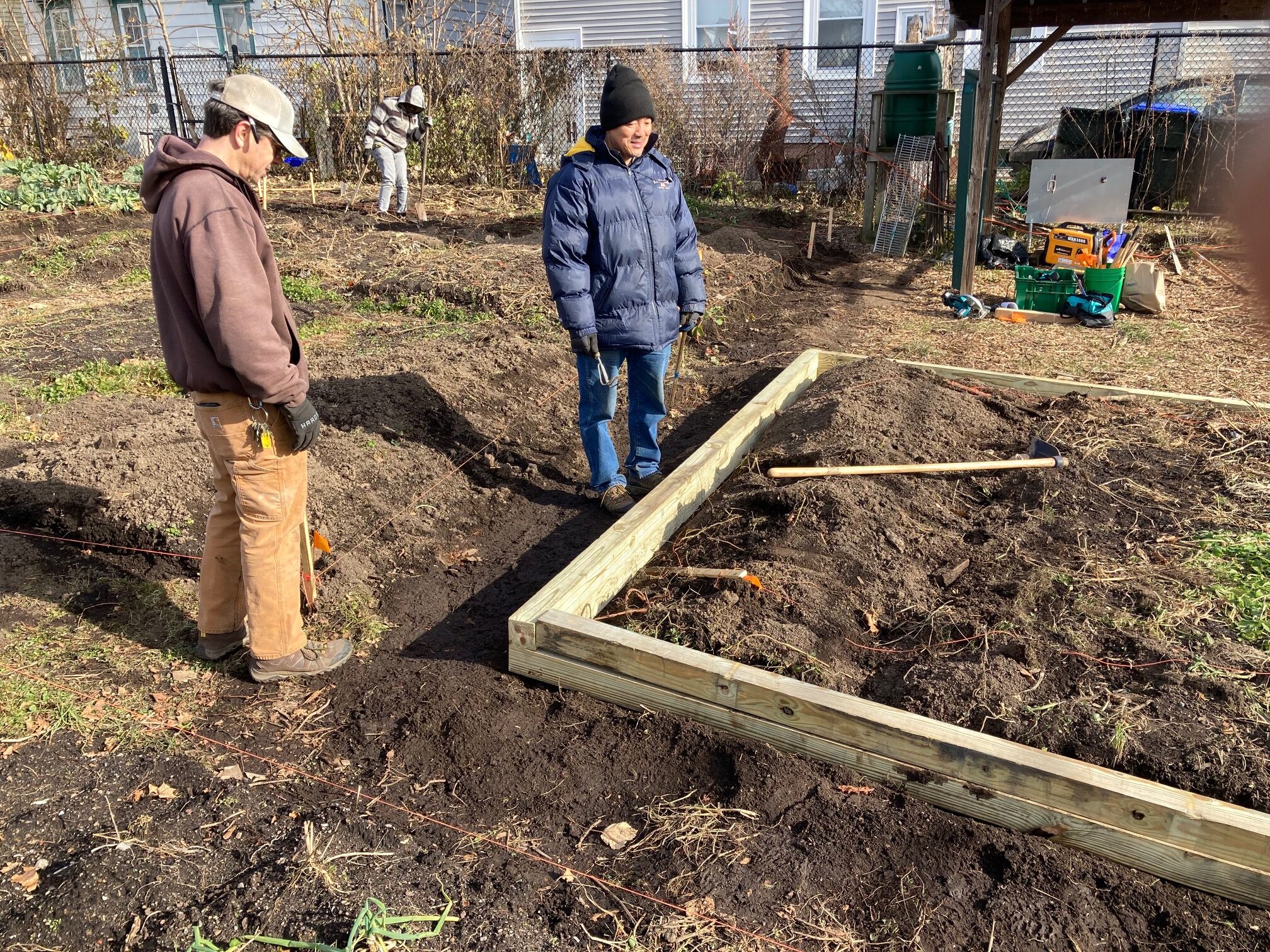
 Backed by our Burnett Community Garden and neighbored by residences and an elementary school, Greenwich Garden this winter received its first major facelift since SCLT established the green space in 2011. Led by Andrew Cook, Community Garden Network Director, and Blong Yang, Garden Network Associate, the project brought together SCLT staff, Greenwich gardeners, and volunteers from partner organizations who got their hands dirty to help make important improvements to the busy garden.
Backed by our Burnett Community Garden and neighbored by residences and an elementary school, Greenwich Garden this winter received its first major facelift since SCLT established the green space in 2011. Led by Andrew Cook, Community Garden Network Director, and Blong Yang, Garden Network Associate, the project brought together SCLT staff, Greenwich gardeners, and volunteers from partner organizations who got their hands dirty to help make important improvements to the busy garden.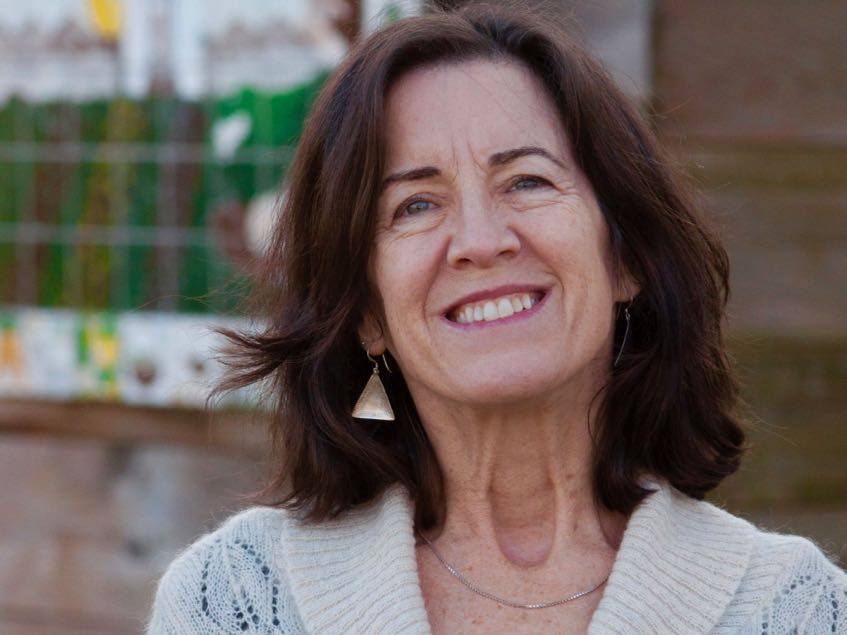 We bid farewell to
We bid farewell to  In January, SCLT welcomed Marcel De Los Santos to the role of Grants & Communications Manager. Marcel brings 15 years of development experience, including grants management, multimedia communications, and stakeholder engagement. With a particular passion for food security and a record of working with diverse audiences, Marcel is committed to developing opportunities for others. Marcel supervises SCLT’s Federal Grants Coordinator
In January, SCLT welcomed Marcel De Los Santos to the role of Grants & Communications Manager. Marcel brings 15 years of development experience, including grants management, multimedia communications, and stakeholder engagement. With a particular passion for food security and a record of working with diverse audiences, Marcel is committed to developing opportunities for others. Marcel supervises SCLT’s Federal Grants Coordinator 

